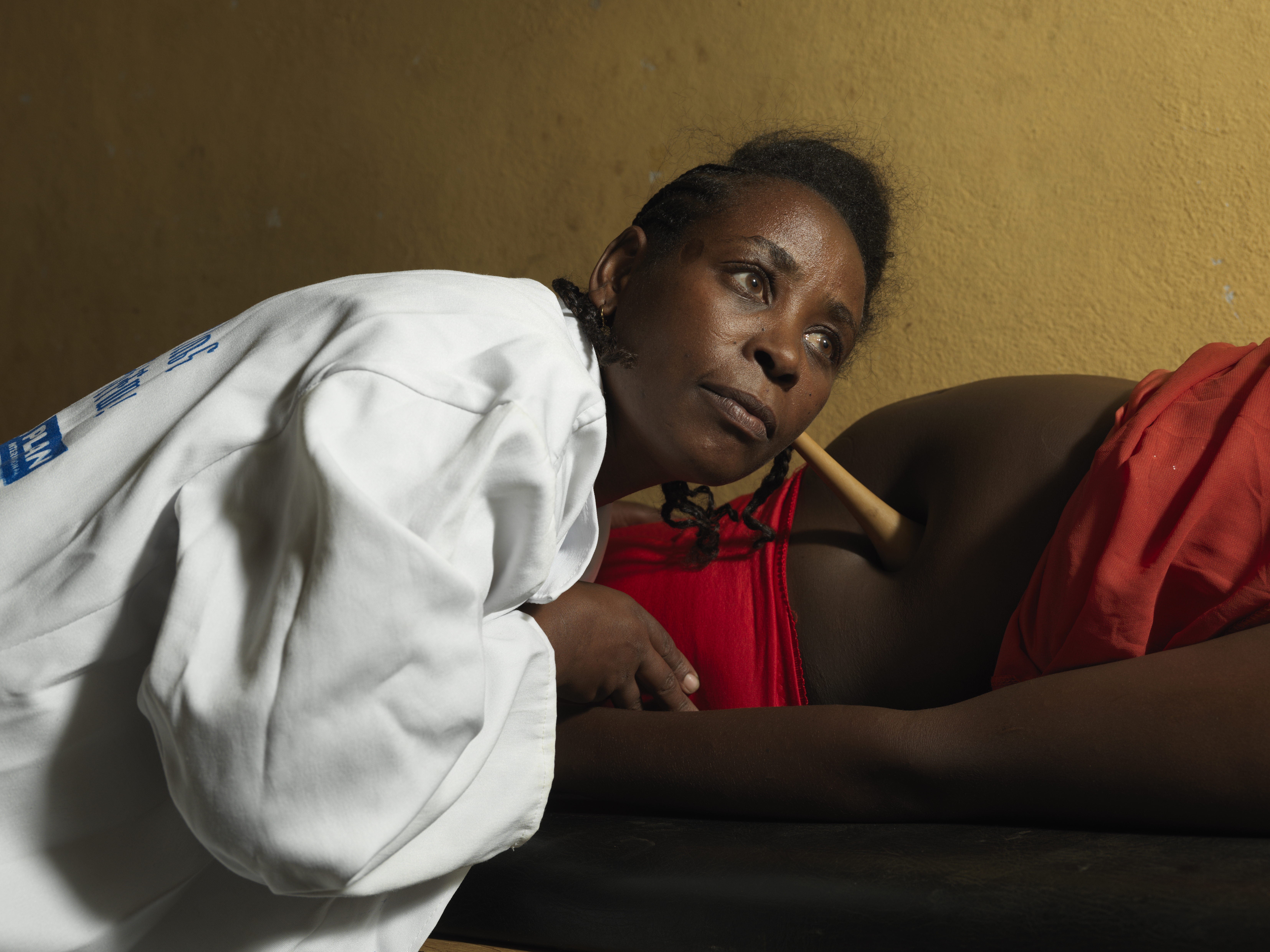The UK Government has historically played a leading role in its commitment to reducing the global burden of disease and strengthening health systems to provide equitable access to healthcare. However, in recent years, amidst the landscape of the COVID-19 pandemic, progress to achieving global health equity has been disrupted and the UK’s financial contribution towards this goal — via overseas development assistance (ODA) and the Global Fund — has reduced.
A new report, published by Action for Global Health — an influential network of more than 50 organisations, including Malaria Consortium, working to secure political action and commitments in the UK to improve health equity globally — provides a comprehensive assessment of the UK Government’s work towards improving global health equity and calls on the UK to address ongoing challenges that have been exacerbated by the pandemic.
The Stocktake Review highlights improvements in global health from 2000 to 2019, including a 50 percent reduction in child mortality and the fall of maternal mortality by a third. However, since 2015 and the devastating impact of the subsequent COVID-19 pandemic, progress has stalled.
Vulnerable populations were disproportionately affected, which posed threats to progress against other diseases. The long-term effects of the pandemic persist, with significant declines in childhood vaccinations, increased deaths from tuberculosis and malaria, and slow progress in reducing maternal mortality and expanding universal health coverage (UHC).
Reviewing key UK Government policy papers, political interventions, financial allocations and health programming in the context of challenges such as conflict, climate change and cuts to ODA, the report highlights a number of recommendations to address challenges and work towards achieving UHC and global health equity by 2030.
Strengthening political commitments
The UK has made significant political commitments to global health equity, including launching policy papers and strategies focused on health systems strengthening and UHC. In December 2021, the UK released a position paper on Health System Strengthening for Global Health Security and Universal Health Coverage. This paper underscored the importance of resilient health systems to achieve UHC. In May 2023, the UK published a policy paper, Global Health Framework: Working Together Towards a Healthier World. This recognised the importance of UHC, strong health systems and emphasised the UK’s commitment to the right to health and leaving no-one behind.
While these demonstrate policy commitments to global health equity and UHC, the report notes a lack of clear implementation plans, financing details and accountability frameworks to fully realise these stated aims. The report urges the UK Government to appoint a Special Envoy for UHC, to urgently reinstate the 0.7 percent commitment to ODA and address the impact of funding cuts to health programmes, and to maintain ODA to health at least above 0.1 percent of gross national income.
Challenging health disparities at the community level
Disadvantaged communities face disparities in accessing healthcare, leading to increased exposure to health risks. Access to essential health services has slowed, and financial hardship in accessing care remains a challenge.
The report encourages the UK to work with community-based health systems and grassroots organisations to increase reach, community empowerment and accountability for quality essential health services. Specifically, the UK is called upon to support the development of a comprehensive cross-government global health equity strategy in 2025, through consultation with civil society and communities affected by health inequities, with clear implementation plans to shift ODA spending to low- and middle-income country civil society and community-based organisations.
Protecting sexual and reproductive health rights
Challenges persist in realising sexual and reproductive health rights (SRHR) for women and girls. Cuts to the UK’s flagship Women’s Integrated Sexual Health (WISH) programme resulted in activities ending in 10 out of 27 countries and pausing in five more, reducing access to SRHR services for marginalised groups. Restrictions in accessing quality SRHR services were also compounded by the pandemic.
The report recommends the UK uphold its commitments to SRHR as part of achieving UHC and gender equality goals outlined in strategies such as the Foreign, Commonwealth and Development Office (FCDO)’s Ending Preventable Deaths Approach Paper and International Women and Girls Strategy 2023 to 2030.
The UK on the world stage
The UK also has a role to play in strengthening the work of global institutions to achieve health equity and strong health systems. The UK Government is encouraged to protect staff and expertise on global health within FCDO and other relevant departments by maintaining UK representation on the boards of global health institutions, including the World Health Organization, Gavi and the Global Fund to Fight AIDS, Tuberculosis and Malaria.
The findings of the Stocktake Review underscore the importance of sustained efforts and adequate funding to address global health challenges and achieve equitable healthcare access worldwide. By aligning with national strategies for achieving UHC and reinvigorating political, financial, and programmatic commitments to prioritise building inclusive health systems across all its development efforts, the UK can play a vital role in global health equity.
Global events including the 2024 High-level Meeting on Antimicrobial Resistance (AMR), 2024 Summit of the Future, and upcoming COP summits on climate change are opportunities for governments around the world — including the UK — to come together, re-energising efforts to achieve healthy lives for all.
